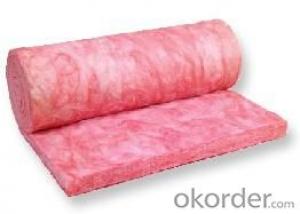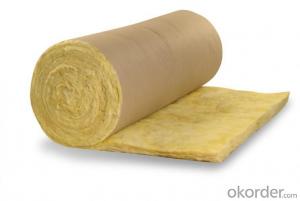High Quality Fiberglass Insulation / Glass Wool Insulation for Roof in Construction
- Loading Port:
- Tianjin
- Payment Terms:
- TT OR LC
- Min Order Qty:
- 5000 m²
- Supply Capability:
- 20000 m²/month
OKorder Service Pledge
OKorder Financial Service
You Might Also Like
1.Description of Glass Wool Blanket:
Glass Wool Blanket complete glass wool production lines employing latestgeneration technology to manufacture boards, rolled blankets and pipes for residential and industrial thermal and acoustic insulation needs, in compliance with the top international standards (EN, DIN, ASTM).
At the system HOT END, the raw materials are dosed, mixed, melted, fiberized, impregnated with a special binder and formed into a primitive mat of very fine fiber glass. Continuous conveyors transport the mat to the COLD END of the plant for binder polymerization. The product is then cut to shape and packed for shipping.
2.Main features of Glass Wool Blanket:
1.Excellent thermal, acoustical properties
2.Light weight and easy to fabricate on job site
3.Non-combustible and fire-retardant
4.Very economical, especially when using thick layers of insulation
5.Durable, life-time and termite proof
3.Glass Wool Blanket Images:
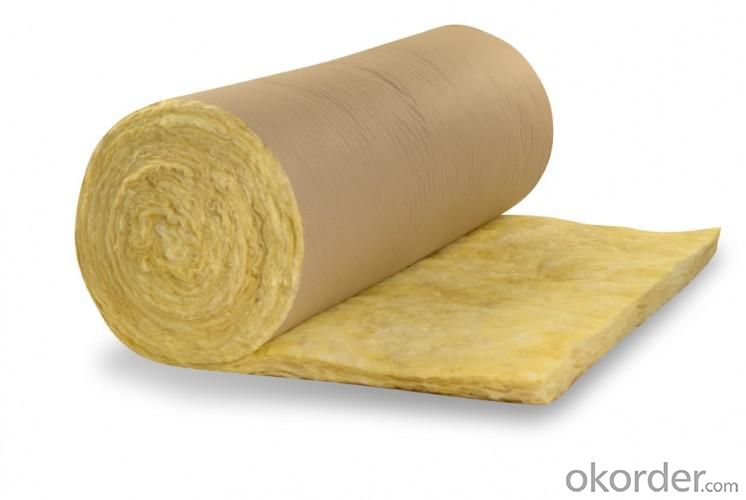
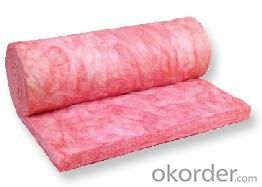
4. Glass Wool Insulation Blanket Technical Parameters:
Property | High/low temperature resistance, oil and fuel resistance, weathering resistance, O zone resistance etc. |
Shape | According to your requirement. |
Color | Any color is available ,according to your requirements. |
Material | NBR, CR, SBR, EPDM, IIR, NR, EP, Silicone, VITON etc. |
Hardness | 30-90ShoreA |
Delivery | In 10 days |
Packing | Plastic bag & carton box or according to your requirements. |
Application | Electronic field, industrial machine & equipment, house-hold appliance, telecommunication, automobile, medical equipment industry etc. |
5.FAQ 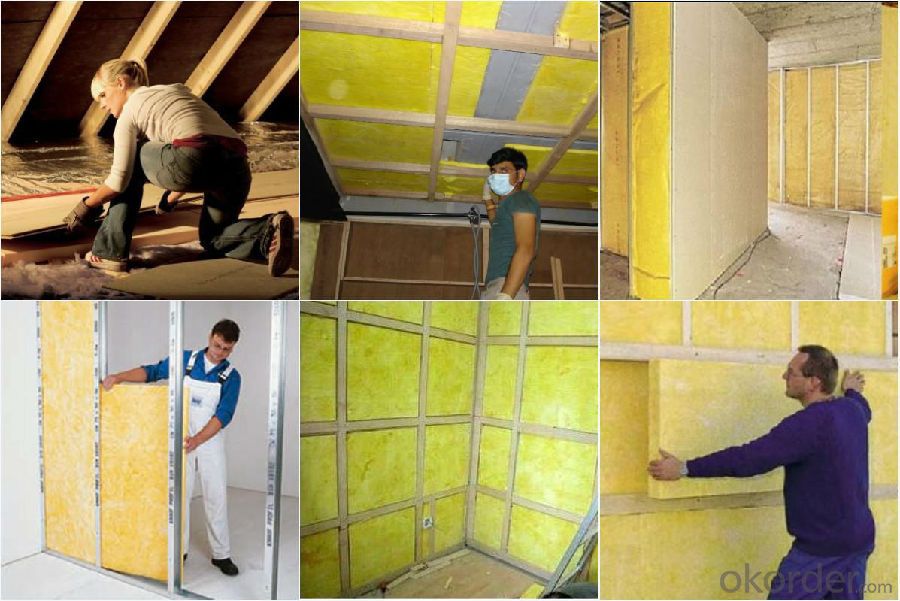
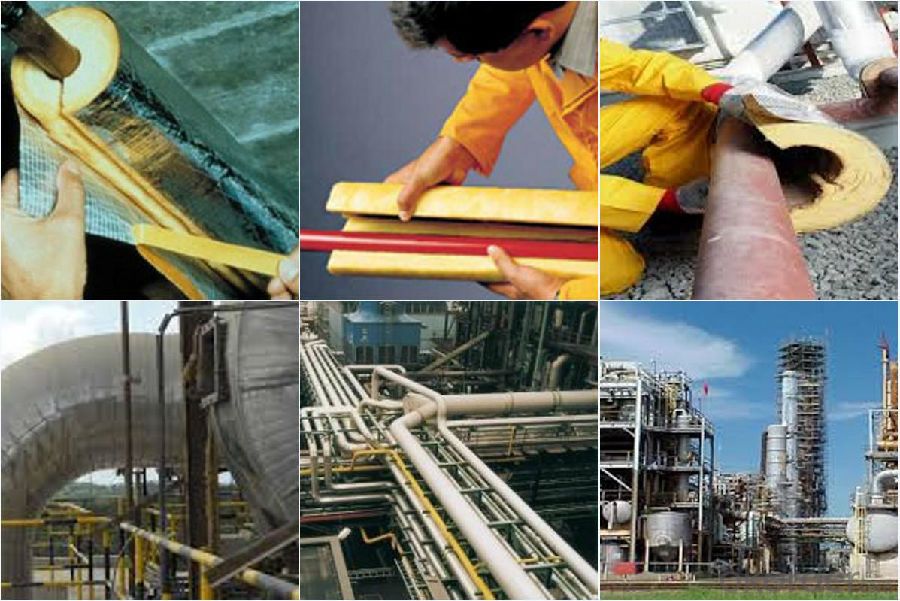
We have organized several common questions for our clients,may help you sincerely:
①How about your company?
A world class manufacturer & supplier of Glass Wool Blanket is one of the large scale professional investment casting production bases in China,consisting of both casting foundry forging and machining factory. Annually more than 8000 tons Precision casting and forging parts are exported to markets in Europe,America and Japan. OEM casting and forging service available according to customer’s requirement.
②How to guarantee the quality of the products?
We have established the international advanced quality management system every link from raw material to final product we have strict quality test; We resolutely put an end to unqualified products flowing into the market. At the same time, we will provide necessary follow-up service assurance.
- Q:Is fiberglass mat tissue suitable for insulation in cold storage facilities?
- Cold storage facilities can benefit from the use of fiberglass mat tissue as an insulation material. Fiberglass possesses remarkable thermal insulation properties, effectively blocking heat transfer and maintaining low temperatures in the storage area. Moreover, fiberglass is moisture-resistant and does not absorb water, making it ideal for environments prone to condensation and moisture. The installation of fiberglass mat tissue is simple and offers a cost-effective solution for insulating the walls, ceilings, and floors of cold storage facilities. Ultimately, the use of fiberglass mat tissue plays a vital role in preserving the desired cold temperatures and preventing any thermal leaks in these facilities.
- Q:How does fiberglass mat tissue compare to other types of reinforcement materials?
- Fiberglass mat tissue is a type of reinforcement material that is commonly used in various industries such as construction, automotive, and marine. When comparing fiberglass mat tissue to other types of reinforcement materials, several factors come into play. Firstly, fiberglass mat tissue offers excellent strength and durability. It has high tensile strength, meaning it can withstand considerable pulling or stretching forces without deforming or breaking. This strength is comparable, if not superior, to other reinforcement materials like carbon fiber or aramid fibers. Additionally, fiberglass mat tissue has good resistance to chemical, moisture, and UV degradation, making it suitable for long-term use in various environments. Another advantage of fiberglass mat tissue is its cost-effectiveness. Compared to other reinforcement materials, fiberglass is relatively inexpensive, making it a popular choice for manufacturers and builders who require a cost-efficient solution without compromising on quality. Its affordability makes it accessible to a wider range of applications and industries. Furthermore, fiberglass mat tissue is known for its versatility. It can be molded into various shapes and sizes, allowing for customization and flexibility in design. This adaptability makes fiberglass mat tissue suitable for a wide range of applications, from simple repairs to complex structural reinforcements. However, it is worth noting that fiberglass mat tissue may have some limitations compared to other reinforcement materials. For instance, it may not have the same level of stiffness or strength as carbon fiber, which is often preferred in high-performance applications. Additionally, fiberglass mat tissue may have lower resistance to impact or fatigue compared to materials like aramid fibers. In conclusion, fiberglass mat tissue offers a combination of strength, durability, cost-effectiveness, and versatility that makes it a favorable choice for many applications. While it may have some limitations compared to other reinforcement materials, its overall performance and affordability make it a widely used and reliable option in various industries.
- Q:Is fiberglass mat tissue safe to handle?
- Yes, fiberglass mat tissue is generally safe to handle. However, it is important to take certain precautions such as wearing protective gloves and a mask to avoid skin irritation or inhalation of fibers.
- Q:Can fiberglass mat tissue be used in corrosive environments?
- No, fiberglass mat tissue is not suitable for use in corrosive environments as it is not resistant to corrosion.
- Q:What is the thickness range of fiberglass mat tissue?
- The thickness of fiberglass mat tissue may vary depending on the product and manufacturer at hand. Generally, one can find fiberglass mat tissues in thicknesses that span from 0.1mm to 1mm. It is worth emphasizing that the thickness of the fiberglass mat tissue plays a significant role in determining its strength, flexibility, and various other qualities. Therefore, it is imperative to carefully choose the suitable thickness that aligns with the intended application.
- Q:How does the density of fiberglass mat tissue affect its performance?
- The density of fiberglass mat tissue significantly affects its performance. Fiberglass mat tissue is typically used in various applications, such as insulation, construction materials, and composite materials. The density of the fiberglass mat tissue determines its strength, durability, flexibility, and thermal insulation properties. A higher density fiberglass mat tissue generally offers better strength and durability. This is because a higher density implies more fiberglass strands are packed closely together, resulting in a denser and stronger material. It can withstand higher loads and impacts, making it suitable for applications requiring structural integrity, such as in construction or automotive industries. Moreover, the density of fiberglass mat tissue also influences its flexibility. A lower density fiberglass mat tissue tends to be more pliable and easier to shape. It can be molded into intricate shapes and contours, making it suitable for applications where flexibility is essential, such as in boat manufacturing or automotive body parts. The density also affects the thermal insulation properties of fiberglass mat tissue. Higher density fiberglass mat tissue offers better insulation against heat transfer. It effectively prevents the transfer of heat through conduction, making it ideal for insulation purposes, such as in buildings or piping systems. However, it is important to note that the density of fiberglass mat tissue should be chosen based on the specific requirements of the application. While higher density may provide better strength and durability, it also increases the weight and cost of the material. Therefore, a balance needs to be struck between the desired performance characteristics and the practicality of the specific application.
- Q:What is the typical width of fiberglass mat tissue rolls?
- The typical width of fiberglass mat tissue rolls can vary depending on the specific manufacturer and intended application. However, in the construction and insulation industries, fiberglass mat tissue rolls are commonly available in widths ranging from 1.22 meters (4 feet) to 2.44 meters (8 feet). These dimensions are often chosen to align with standard building materials and construction practices. It is important to note that there may be variations in width options depending on the region or supplier, so it is advisable to consult with the manufacturer or supplier for the specific width requirements for a particular project.
- Q:Can fiberglass mat tissue be used for marine applications?
- Fiberglass mat tissue finds widespread use in marine applications. It serves multiple purposes in the marine industry, including boat construction, repairs, and maintenance. This material boasts remarkable strength, durability, and water resistance, rendering it an optimal choice for marine applications. Additionally, fiberglass mat tissue is lightweight and malleable, enabling convenient shaping and customization. It remains impervious to corrosion caused by saltwater and other harsh marine conditions. Consequently, fiberglass mat tissue emerges as a dependable and adaptable material that enjoys frequent employment within the marine industry.
- Q:Is fiberglass mat tissue suitable for insulation in educational facilities?
- Yes, fiberglass mat tissue is suitable for insulation in educational facilities. Fiberglass mat tissue is commonly used in insulation applications due to its excellent thermal insulation properties. It is a lightweight and cost-effective material that can effectively insulate buildings, including educational facilities, against heat loss or gain. Fiberglass mat tissue is also known for its fire-resistant properties, which is an important aspect to consider in any building, especially in educational facilities where the safety of students and staff is a top priority. Additionally, fiberglass mat tissue is easy to install and does not require extensive maintenance, making it a convenient choice for insulation in educational facilities.
- Q:Is fiberglass mat tissue recyclable?
- Yes, fiberglass mat tissue is recyclable. Fiberglass is made from a combination of glass fibers and a binder material, usually resin. When the material is no longer needed or has reached the end of its life cycle, it can be recycled by separating the glass fibers from the binder material. The glass fibers can then be melted down and used to create new fiberglass products, while the binder material can be treated and reused in other applications. Recycling fiberglass mat tissue helps to reduce waste and conserve natural resources, making it an environmentally friendly option.
1. Manufacturer Overview |
|
|---|---|
| Location | |
| Year Established | |
| Annual Output Value | |
| Main Markets | |
| Company Certifications | |
2. Manufacturer Certificates |
|
|---|---|
| a) Certification Name | |
| Range | |
| Reference | |
| Validity Period | |
3. Manufacturer Capability |
|
|---|---|
| a)Trade Capacity | |
| Nearest Port | |
| Export Percentage | |
| No.of Employees in Trade Department | |
| Language Spoken: | |
| b)Factory Information | |
| Factory Size: | |
| No. of Production Lines | |
| Contract Manufacturing | |
| Product Price Range | |
Send your message to us
High Quality Fiberglass Insulation / Glass Wool Insulation for Roof in Construction
- Loading Port:
- Tianjin
- Payment Terms:
- TT OR LC
- Min Order Qty:
- 5000 m²
- Supply Capability:
- 20000 m²/month
OKorder Service Pledge
OKorder Financial Service
Similar products
New products
Hot products
Hot Searches
Related keywords

